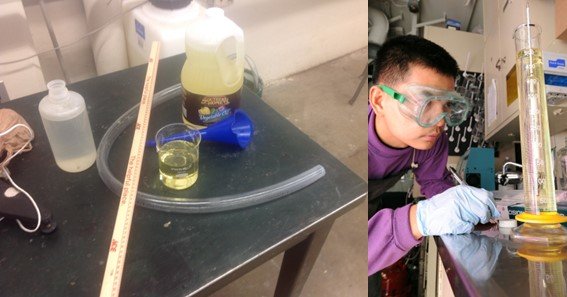Specific gravity, also known as relative density, is a crucial concept in fluid mechanics. It helps engineers and scientists understand the behavior of fluids by comparing the density of a substance to that of a reference substance, typically water at 4°C. In fluid mechanics, specific gravity is often used to analyze buoyancy, fluid flow, and the stability of structures in different fluids.
What is Specific Gravity?
Specific gravity is the ratio of the density of a substance (ρsubstance\rho_{substance}ρsubstance) to the density of water (ρwater\rho_{water}ρwater). The formula for specific gravity is:
SG=ρsubstanceρwaterSG = \frac{\rho_{substance}}{\rho_{water}}SG=ρwaterρsubstanceHere, ρsubstance\rho_{substance}ρsubstance is the density of the object or fluid, and ρwater\rho_{water}ρwater is the density of water, which is approximately 1000 kg/m³ or 1 g/cm³ at 4°C.
Importance in Fluid Mechanics
Specific gravity is essential in understanding fluid behavior, especially in areas like fluid flow, buoyancy, and pressure calculations. It determines whether an object will sink or float when immersed in a fluid. For example, substances with a specific gravity greater than 1 will sink in water, while those with a specific gravity less than 1 will float.
Applications of Specific Gravity in Fluid Mechanics
- Buoyancy Calculations: Specific gravity helps determine if an object will float or sink, making it critical in designing ships and submarines.
- Flow Analysis: In hydraulic systems, knowing the specific gravity of fluids is vital for calculating flow rates and pressure.
- Material Selection: Engineers use specific gravity to select materials that will behave predictably when immersed in fluids.
Factors Affecting Specific Gravity
Temperature and pressure can significantly affect the density of both the substance and water, which in turn alters the specific gravity. Therefore, it is essential to measure specific gravity at a controlled temperature and pressure to obtain accurate results.
Instruments to Measure Specific Gravity
- Hydrometer: A simple tool used to measure the specific gravity of liquids. It floats at different levels depending on the liquid’s density.
- Pycnometer: A precise instrument used to measure the specific gravity of solids, liquids, and gases.
- Digital Density Meters: These provide quick and accurate specific gravity measurements by using oscillation and temperature correction methods.

FAQ
- What is the formula for specific gravity in fluid mechanics?
The specific gravity formula is SG=ρsubstanceρwaterSG = \frac{\rho_{substance}}{\rho_{water}}SG=ρwaterρsubstance, where ρsubstance\rho_{substance}ρsubstance is the density of the substance, and ρwater\rho_{water}ρwater is the density of water. - Why is specific gravity important in fluid mechanics?
It helps in calculating buoyancy, flow rates, and material stability in fluids, which are essential for various engineering applications. - How does temperature affect specific gravity?
As temperature increases, the density of both the substance and water decreases, which can change the specific gravity. Standard temperature conditions are usually used for accurate calculations. - What instruments are used to measure specific gravity?
Instruments like hydrometers, pycnometers, and digital density meters are commonly used to measure the specific gravity of fluids. - What does a specific gravity value of less than 1 mean?
If the specific gravity of a substance is less than 1, it means the substance is less dense than water and will float.
This blog offers a detailed overview of specific gravity in fluid mechanics, covering its formula, applications, and importance in real-world engineering scenarios.










